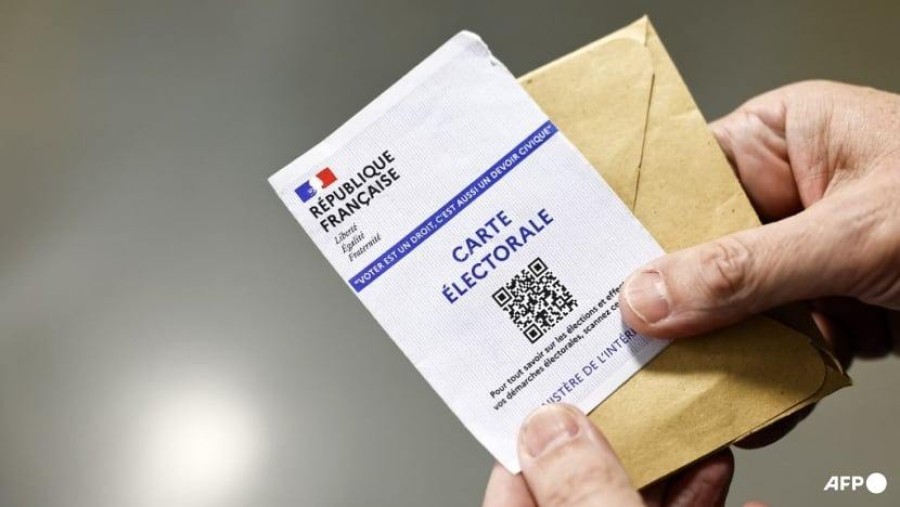EU voters head to polls on last day of marathon elections

Voters across Europe cast their ballots Sunday (Jun 9) on the final - and biggest - day of elections for the EU's parliament, with far-right parties expected to make gains at a pivotal time for the bloc.
Polling stations opened in 21 member countries, including heavy hitters France and Germany, for the vote that helps shape the European Union's direction over the next five years.
"These elections are crucial because the European Parliament must start to play its rightful role," Kostas Karagiannis told AFP as he emerged from a polling station in Athens.
The vote comes as the continent is confronted with Russia's war in Ukraine, global trade and industrial tensions marked by US-China rivalry, a climate emergency and a West that within months
The outcome will determine the makeup of the EU's next parliament that helps decide who runs the powerful European Commission, with German conservative Ursula von der Leyen vying for a second term in charge.
While centrist mainstream parties are predicted to hold most of the incoming European Parliament's 720 seats, polls suggest they will be weakened by a stronger far-right pushing the bloc towards ultra-conservatism.
Preliminary results are expected Sunday evening.
Many European voters, hammered by a high cost of living and fearing immigrants to be the source of social ills, are increasingly persuaded by populist messaging.
Hungarian voter Ferenc Hamori, 54, said he wanted to see the EU led more by politicians like his country's right-wing premier Viktor Orban - even though he expected him to remain "outnumbered in Brussels".
In countries close to Russia, the spectre of the threat from Moscow was a major motivation.
"I would like to see greater security," doctor Andrzej Zmiejewski, 51, said after voting in Poland's capital Warsaw.
BATTLEGROUND FRANCE
France will be the EU's high-profile battleground for the competing ideologies.
With voting intentions above 30 per cent, Marine Le Pen's far-right National Rally (RN) is predicted to handily beat President Emmanuel Macron's liberal Renaissance party, polling at 14 to 16 per cent.
In the French city of Lyon, 83-year-old Albert Coulaudon said Macron was getting "mixed up" in too many international issues such as the war in Ukraine.
"That scares me," he told AFP.
In Germany, Europe's biggest economy, the election could likewise deal a blow to Chancellor Olaf Scholz -- whose centre-left SPD is polling behind the far-right Alternative for Germany (AfD).
Leading the polls are the centre-right Christian Democrats, credited with 30 per cent of votes - but on 14 percent the AfD is either neck-and-neck or ahead of all three parties in the ruling coalition: SPD, Greens and the liberal FDP.
Le Pen, who has strived to shed the RN of its past reputation for anti-Semitism and xenophobia, has made overtures to Italy's far-right premier Giorgia Meloni with an eye to teaming up.
But Meloni, while fiercely opposed to undocumented asylum-seekers entering Europe, has cultivated a pro-EU position and given little heed publicly to Le Pen's offer.
